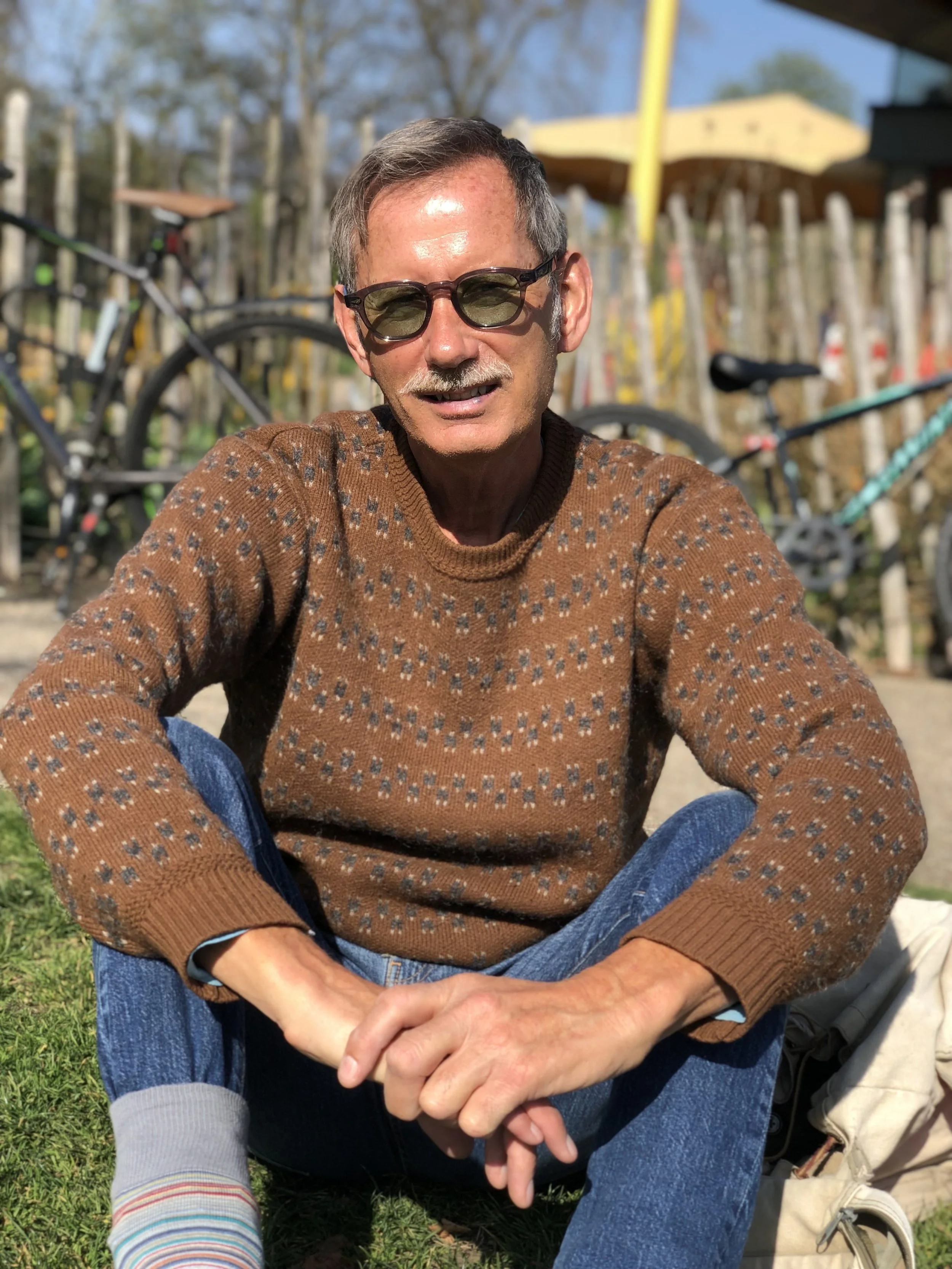The Stoic Wisdom of My Father and Grandfather: Lessons in Discipline and Life
In my journey through numerous self-help and philosophy books, I've discovered a profound truth: the most crucial lessons often trace back to our earliest teachings. I was fortunate to learn from two extraordinary men – my grandfather and father – whose lives embodied principles found in many of these books. They were disciplined, successful, and carried a quiet wisdom worth sharing.
Discipline in Everyday Life
"Discipline is choosing between what you want now and what you want most." – Abraham Lincoln
My grandfather, a former RAF bomb aimer in World War II, lived with a regimented elegance. He wore a suit daily, upheld a morning ritual of fetching the newspaper and solving crossword puzzles, and devoured books, particularly Winston Churchill's works. His life was a testament to routine and respect for tradition.
Implement a structured daily routine. Include time for reading, a hobby, or any activity that enriches your mind. Dress intentionally each day, reflecting self-respect and purpose.
My Grandad John Martin. Always a joy to be around
Financial Prudence: A Legacy of Value
"A penny saved is a penny earned," my grandfather would say. His frugality was not mere thriftiness but a deep understanding of value – a lesson as relevant today as it was then. My grandmother, with her zest for life, balanced his frugality, teaching us the importance of enjoying life's offerings. Their differing views on money created a harmony that underscored the importance of balance in financial matters.
Adopt a mindful approach to spending. Save a portion of your income and evaluate the necessity and value of your purchases, balancing thriftiness with the joy of life's experiences.
The Power of Routine and the Art of Simplicity
"Simplicity is the ultimate sophistication." – Leonardo da Vinci
Both men adhered to simple yet powerful routines. My father's day began before dawn, a time for exercise and mental preparation. Even in retirement, his commitment to an early bedtime and structured day remains unwavering. Such discipline extends to financial habits – my grandfather's maxim, "Woeful waste leads to willful want," highlights the virtue of conservation and the perils of excess.
Simplify your daily life by establishing and adhering to routines. Prioritize early rising and exercise, and maintain a consistent sleep schedule.
My Dad Nigel Martin, the apple doesn’t fall far from the tree.
Attire as a Reflection of Self-Respect
"Character is how you treat those who can do nothing for you." – Johann Wolfgang von Goethe
"Dress for the job you want," was more than a saying for my grandfather; it was a way of life. He and my father understood that attire is a reflection of self-respect and intention. This principle remains vital in an era where the lines between professional and casual are increasingly blurred.
Assess and refine your wardrobe to reflect the professional image you aspire to. Invest in quality pieces that make you feel confident and purposeful.
Mental Clarity Through Order
"Order your soul. Reduce your wants." – Augustine of Hippo
"Keep your house and your desk tidy." This advice, repeated in countless self-improvement books, was a lived reality for my father and grandfather. Their organized spaces were mirrors of their organized minds, a principle that holds true in today's fast-paced, often chaotic world.
Spend a few minutes at the end of each day organizing your space. A tidy environment fosters clarity and focus, enhancing productivity and peace of mind.
The Luxury of Unplugging
"All man's miseries derive from not being able to sit quietly in a room alone." – Blaise Pascal
In an age where connectivity is constant, my father's practice of unplugging during nights and weekends seems almost revolutionary. This boundary, although challenging in today's work culture, is essential for mental health and work-life balance.
Designate specific times for disconnecting from technology, especially during evenings and weekends, to reconnect with yourself and loved ones.
The Subtleties of Eating In
"Contentment is natural wealth, luxury is artificial poverty." – Socrates
Our family's practice of rarely eating out was not just an economic choice but a lifestyle one. It encouraged healthier eating habits and a more active lifestyle principles echoed in the lifestyles of the world's longest-lived people.
Action Item: Make cooking at home a regular practice. Plan meals and enjoy the process of creating and savoring homemade food.
The Art of Documentation
"The life unexamined is not worth living." – Socrates
From logging car maintenance to family histories, my father and grandfather understood the power of documentation. This habit, while seemingly meticulous, allowed for a deeper understanding and appreciation of life's details.
Start keeping a journal or log for different aspects of your life, such as finances, health, or personal milestones.
The Essence of Time Management
"You have power over your mind - not outside events. Realize this, and you will find strength." – Marcus Aurelius
"Time is a non-renewable resource," they taught me. Their intentional use of time, strict schedules, and ability to say no to non-essential activities were not just practices in efficiency but in living a life aligned with one's values.
Prioritize tasks and use a planner to manage your schedule effectively. Learn to say no to non-essential activities and focus on what aligns with your personal and professional goals.
The Underrated Value of Sleep
"It is in your power to withdraw yourself whenever you desire. Perfect tranquility within consists in the good ordering of the mind, the realm of your own." – Marcus Aurelius
In our family, sleep was sacred – a non-negotiable element of health and well-being. This emphasis on rest, often overlooked in our hustle culture, is a reminder of the basic yet essential components of a healthy life.
Create a bedtime routine that promotes restful sleep. Invest in a comfortable sleep environment and stick to a consistent sleep schedule.
Consistency and Reliability: The Cornerstones of Character
"Integrity is doing the right thing, even when no one is watching." – C.S. Lewis
"Make plans and stick to them," was more than a motto; it was a demonstration of reliability and respect – for others and oneself. This principle stands in stark contrast to today's often flippant attitude towards commitments.
Make commitments thoughtfully and keep them. Practice reliability in both professional and personal contexts to build trust and respect.
Nurturing Relationships: The Foundation of Fulfillment
"Of all the means to insure happiness throughout the whole life, by far the most important is the acquisition of friends." – Epicurus
In a world preoccupied with personal success, the emphasis my family placed on maintaining strong relationships with friends and family serves as a reminder of what truly matters. These bonds are not just social necessities; they are the bedrock of a fulfilled life.
Regularly connect with friends and family. Schedule social activities and maintain relationships through consistent communication.
The Lifelong Journey of Learning
"Education is the kindling of a flame, not the filling of a vessel." – Socrates
Both men were voracious readers, understanding that knowledge and eloquence come from a lifelong commitment to learning. Their example is a powerful counterpoint to today's often superficial engagement with information.
Dedicate time each week to reading or learning something new. Explore topics outside your comfort zone to broaden your perspectives and enhance your knowledge.
Listening: The Underappreciated Skill
"We have two ears and one mouth so that we can listen twice as much as we speak." – Epictetus
Listening – truly listening – was a skill they both mastered. In a world where everyone seems to be talking, the ability to listen is more valuable than ever. It's a skill that fosters understanding, empathy, and wisdom.
Practice active listening in your conversations, focusing on understanding the speaker's point of view before responding.
Intentionality in Speech
"Speak only if it improves upon the silence." – Mahatma Gandhi
Their words were always measured and intentional. They understood that words have power and that speaking for the sake of speaking often diminishes, rather than enhances, communication.
Communicate clearly and purposefully. Think before you speak and aim to use language that is constructive and meaningful.
Conclusion: Embracing the Lessons of the Past for a Better Future
As I reflect on these lessons from my father and grandfather, I realize that their wisdom is not just a legacy of the past but a roadmap for the future. In our complex, fast-paced world, their principles of discipline, simplicity, and intentionality are more relevant than ever. Let us embrace these lessons, not as quaint relics of a bygone era, but as timeless guides to a life well-lived.
Books I read recently that inspired this post:
1. "Discipline is Destiny" by Ryan Holiday

